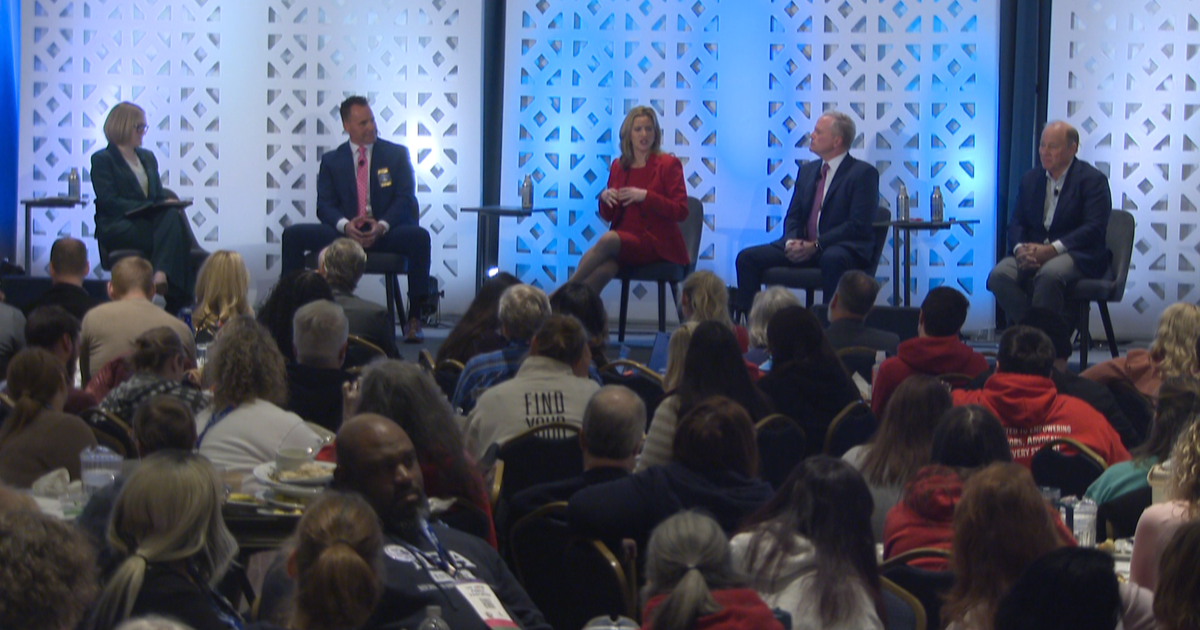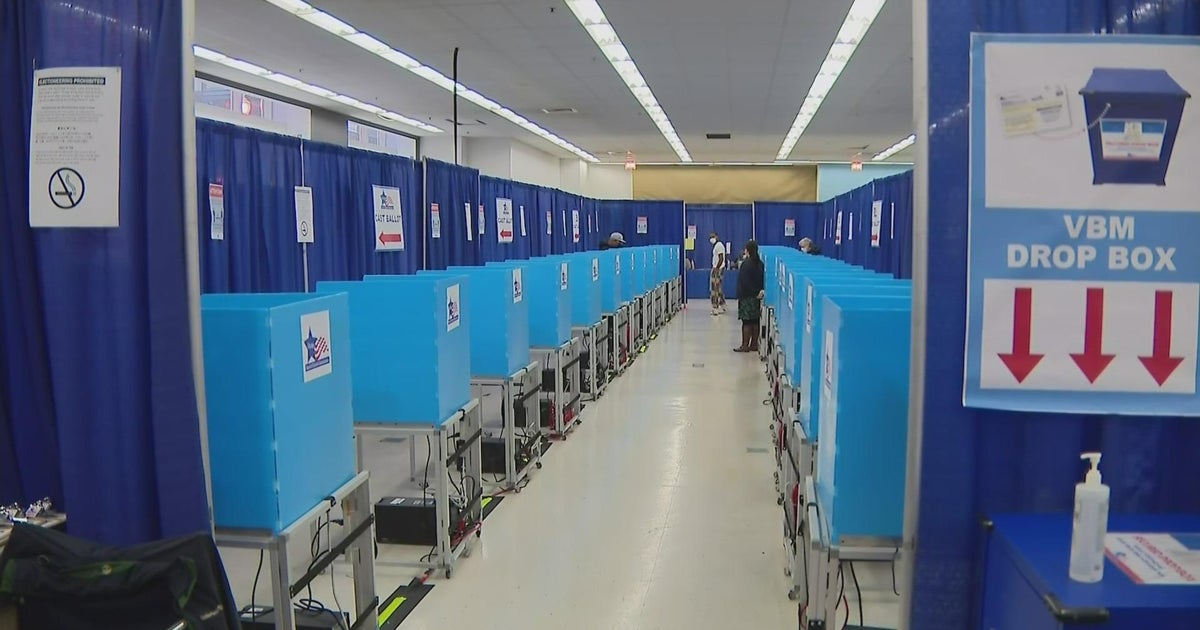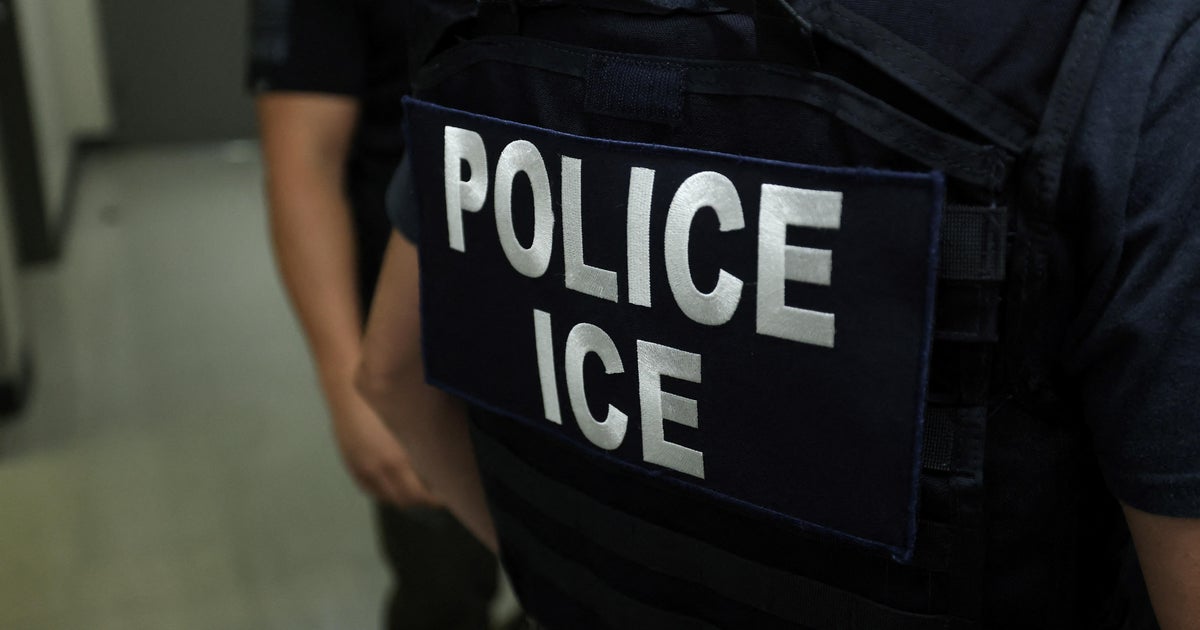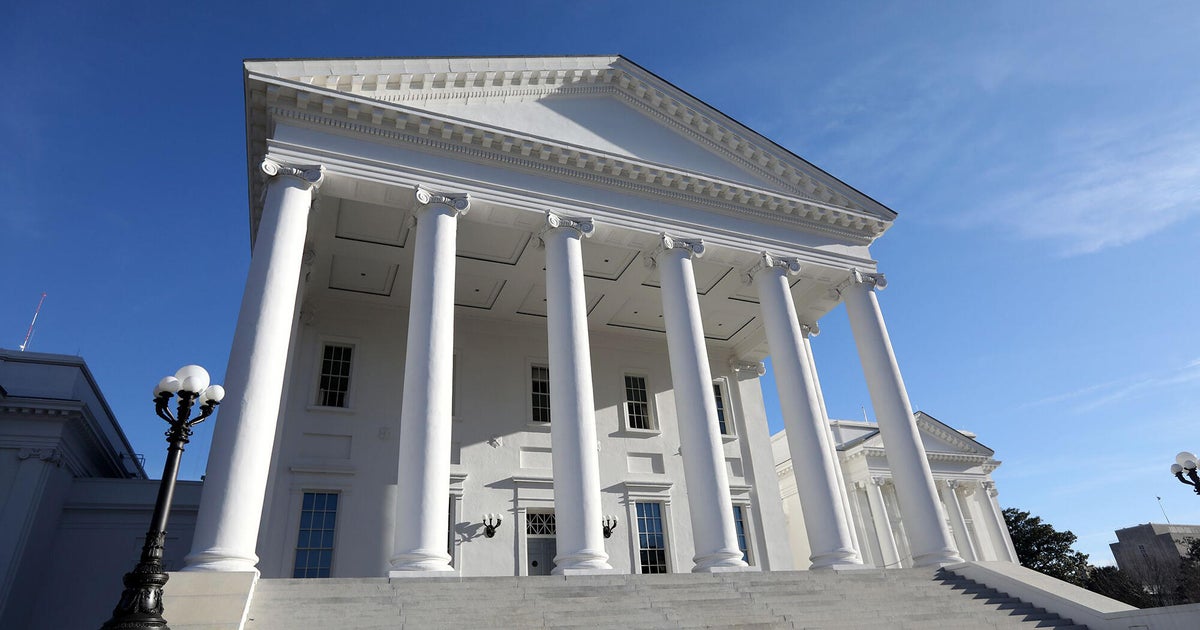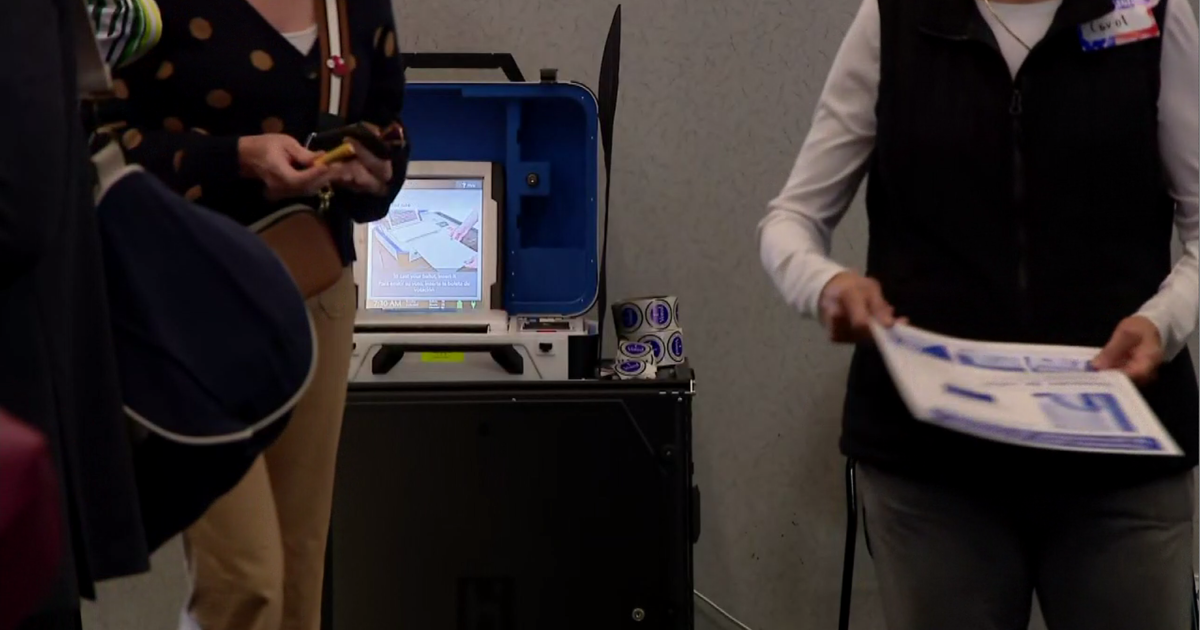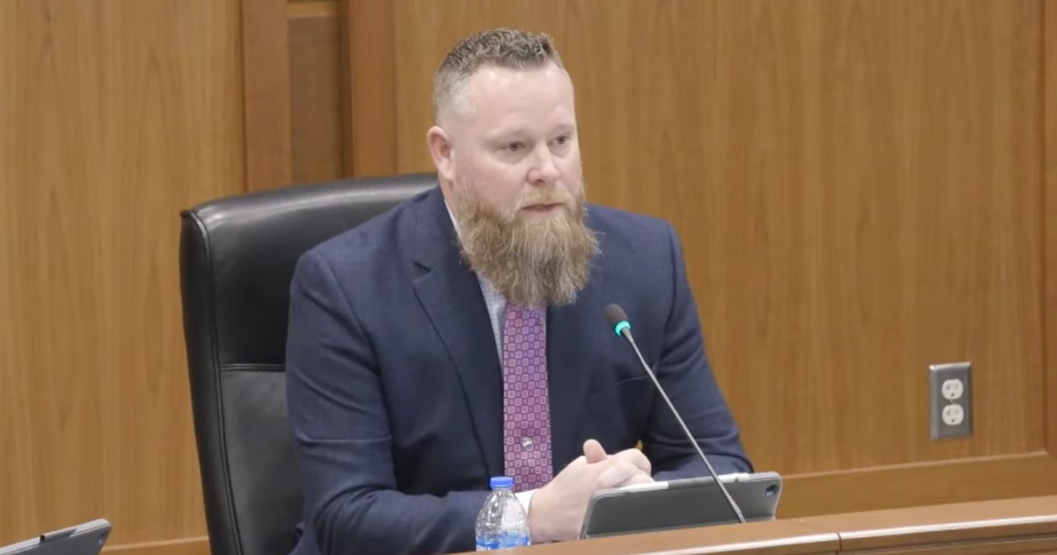2018 Maryland Primary Candidate | Jim Shea
Jim Shea is a Democrat vying for the governor's seat in Maryland. He must face off with seven other candidates in the Maryland primary. These are his unedited answers to WJZ's questionnaire.
Name: Jim Shea
Age: 65
Hometown: Towson, Md.
Current Town/City of Residence: Owings Mills, Md.
Political platform:
I believe that education, transportation, and economic development are interrelated, and my platform integrates all three issue areas. We need an effective transportation system to get people to school and work, we need to educate students in a way that prepares them for the jobs that are available, and we need to create jobs and foster inclusive economic growth.
My education plan will properly compensate teachers, provide universal pre-K, and increase after-school and summer programs in economically disadvantaged areas, and it will be funded by an equitable formula that accounts for areas of concentrated poverty. My transportation plan will focus on public mass transit, from bus rapid transit to rail, that connects the different regions of our state. And my economic development plan will support small businesses and start-ups, as well as targeted investments in infrastructure. As Governor, I will coordinate these plans to ensure that we are investing wisely to improve the lives of all Marylanders.
Tell us about your experience
Throughout my career, I have led large public and private organizations across the state. As Chairman of the University System of Maryland, I led the state's 12 public colleges as we held the line on tuition and improved the classroom experience. I was the inaugural Chair of the Central Maryland Transportation Alliance, where I was a leading advocate for mass transit and helped to expand MARC service. As the Chair of the Empower Baltimore Management Corporation, I oversaw a $100 million federal program to provide capital and job training to citizens in East and West Baltimore. And, I grew my law firm, Venable by 1000% over 22 years, making it one of the largest in the nation. I know the importance of devising a plan, outlining metrics, investing in it, and then executing it and holding people accountable. I think that is exactly what our state needs right now.
Tell us about your family:
I am a life-long Baltimorean. I was born here and have lived here for my entire adult life. I have been married to my wife, Barbara, for 40 years, and we have been blessed with four children and two grandchildren. Maryland has been good to us, but we know it can be better.
What do you view as Maryland's most pressing issues?
Maryland has four pressing issues that I plan to prioritize as governor. First, we have a public education system that is underfunded and slipping. Education will be my top priority, and I will work to increase funding as well as reform the system, including investing in universal pre-k, improved teacher compensation, and expanded vocational and apprentice programs. Second, Marylanders currently sit in some of the worst congestion in the country, and many communities are stratified and isolated from economic opportunity because of a lack of public transportation. I will prioritize mass transit infrastructure that gets people to their jobs quickly and reliably. Third, despite Governor Hogan's claim that Maryland is open for business, we still fall behind national averages and our neighbors in job and wage growth. I will execute a plan that will bring inclusive and expansive economic growth to Maryland. Finally, we have a public safety crisis in our state that includes an epidemic of violent crime and a lack of trust in law enforcement. Along with my running mate, Baltimore City Councilman Brandon Scott, I will address each of these problems to make our communities safer.
How important is bipartisanship in state government?
I think that bipartisanship is crucial in state government, as well as in local government and our federal government. As Governor, I will work to bring together the parties in our state to find real solutions that make progress. This mindset, however, should not be limited to political discourse. I will work to bring together the business community and the education community to ensure that the skills we are teaching in our schools align with the jobs that are available and will be available. In order to improve our health care system, I will bring together the interested parties – patients, doctors, hospitals, and insurers – to chart a path forward that brings down costs and improves quality. And, I will work to convene the agriculture and environmental communities in our state to work towards solutions that protect both our environment and our state's largest commercial industry. To be clear, when Republicans do something that I disagree with or think will hurt our state, I will speak loudly and clearly. However, unsubstantial and politically-motivated attacks only serve to muddy the waters and distract us from making real progress.
Are there personal experiences that have contributed to your decision seek office?
I have worked to make progress in the areas of education, transportation, and economic development because I believe that each of these areas is crucial to the future of our state. Further, in each of these areas, I believe that Governor Hogan is failing Marylanders. As Chair of the University System of Maryland, I worked to expand access to and improve our higher education system because I believe that a good education is the surest ladder of opportunity. Governor Hogan, on the other hand, has underfunded education, and our schools are slipping. I served as the inaugural Chair of the Central Maryland Transportation Alliance because I believe that sound transit policy is one of the best ways to combat economic inequality. Governor Hogan cancelled the Red Line and has spent the state's resources on ill-conceived road-widening projects. And, I led the Empowerment Zones in Baltimore because I think we need to create a more robust and inclusive economy that gives Marylanders the raises they deserve. In Governor Hogan's term in office, Maryland has fallen behind our neighbors in wage and job growth numbers. I believe I have experience in the issues that are most important to our state's future.
What sets you apart from the other candidates in the primary race?
I have extensive experience leading large organizations across the state. The Governor's Office is an executive position. We need an experienced leader who knows how to run a results-oriented organization to accomplish significant and tangible results. As the Chair of the University System of Maryland, I oversaw a system of 12 colleges and universities, 40,000 employees, 160,000 students, and a budget of $5.4 billion. The University System of Maryland has more employees than any other state agency and a larger budget that any other city or county in Maryland. As the Chairman of the Empowerment Zones in Baltimore, I led a $300 million federal project to revitalize East and West Baltimore by providing capital to small and minority-owned businesses and job training to zone residents. Finally, for 22 years, I led my law firm, with 1,500 employees and a budget of more than $500 million. We need a Governor who has the experience to lead the state government and accomplish results for the people of Maryland, and I believe that I am uniquely suited to do so.
What are voters telling you they want to see more/ less of in the state?
Across the state, it's nearly unanimous that Marylanders want more funding for education. They don't feel that like the state is adequately serving their children, and they're right. Our schools are slipping, and it's not the fault of our children or our educators. Larry Hogan has not adequately funded education, and we need a Governor who will implement the Kirwan Commission's reforms and fully fund education. As the former Chair of the University System of Maryland, I am the only Democratic candidate who has delivered a statewide education system, and I am the best candidate to do so as Governor.
Marylanders are also telling me that they want more jobs, and closely related to that, they want a transportation system that will help them actually get to the jobs that are available. Rather than giving massive tax incentive packages to large corporations in the hopes of attracting jobs, as Governor I will support the creation of small businesses and start-ups. I will eliminate burdensome red tape, and I will expand access to capital. I also have a statewide transportation plan that will get Marylanders to their jobs quickly and reliably.
